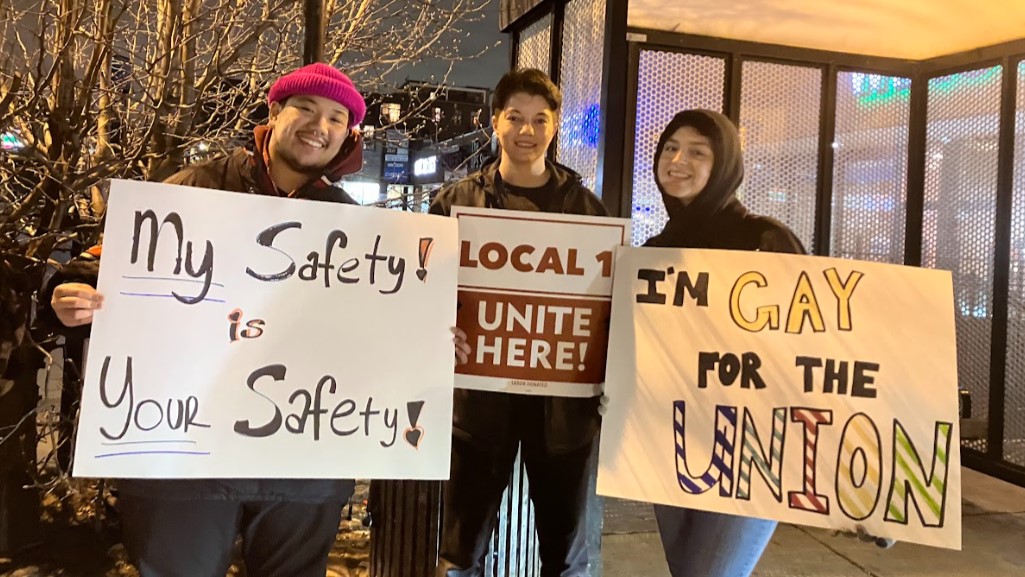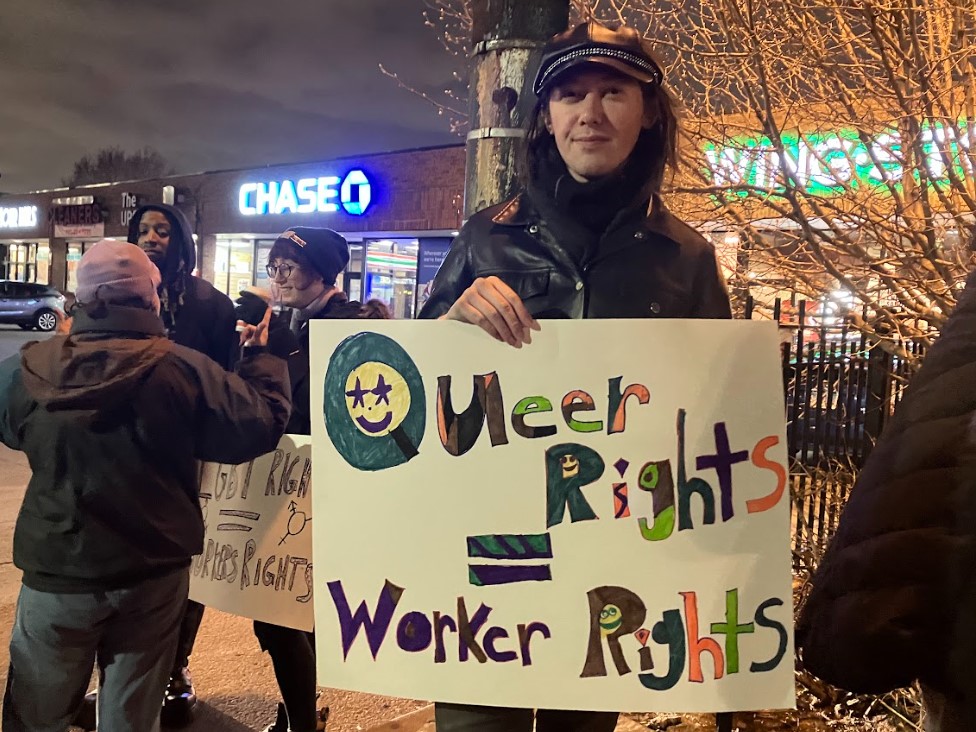On April 4, the majority of workers at the Berlin Nightclub in the Boystown neighborhood of Chicago voted to join UNITE HERE Local 1 in what is thought to be the first unionization effort at a Chicago nightclub.
Three days earlier, workers and supporters staged a large rally and march for union representation in preparation for the vote. Chelle Crotinger on the Berlin security team spoke about the historic vote, saying that Berlin workers were looking to push the struggle for workers’ rights “throughout all of Boystown, as opposed to keeping it up in our own little corner.”
Demands of the union drive included higher wages, increased health benefits, paid sick time, consistency in scheduling and a say in how the workplace is run. “One of the main reasons why we’re unionizing is because we just want to have a seat at the table,” said Syd, a worker at Berlin who did give their last name. They said workers were struggling for a “right to be able to speak up and for our rights and feel heard.” Given a lack of transparency on the hierarchy and lack of communication at Berlin this is a top priority for the struggle.

As an upcoming union of queer workers in a predominantly queer space, the Berlin nightclub unionization represents a larger push of LGBTQ worker liberation from “rainbow capitalism” and gentrification.
Gentrification and ruling-class politics threaten LTBTQ communities as queer venues are being priced out and forced to close. Anti-trans legislation and anti-drag terror continue today as queer oppression is still ongoing. From the ruling class comes far-right systemic violence that affects queer workers, whether in the form of legislation, terror, gentrification or harsh working conditions.
Due to the corporate takeover and transformation of pride parades, bars, and rising rent in these communities (even as high as $3,500/month in West Village in California!) along with the deployment of armed police at places like the Stonewall Inn, gentrification threatens workers’ rights within these spaces.
Crotinger shared their reason to unionize: “…it’s all the little things that happen at almost any workplace, little things that tend to fall through the cracks.” They hope they will be “leaving in place a system where those cracks will never be a problem again,” and that workers’ problems will be addressed and dealt with in a timely manner. Upon hearing the win for Berlin workers Crotinger remarked, “I’m ready for the work to begin and start this legacy in Chicago!”
Marco, who is also on the security team and did not give their last name, said that they wanted to make the nightclub “a better place for a longer period of time,” and wanted higher wages for workers who are in risky environments and who put themselves in harm’s way. They also highlighted the risks of sickness from working around large gatherings of people, especially where COVID-19 is concerned. Work at Berlin Nightclub is also physically exhausting, with heavy lifting, running up and down stairs for coat checks and having to deal with drunk patrons.

Workers at Berlin have been ready to take on this challenge and are feeling a true sense of community from this struggle. Speaking about the rally before the vote, Syd said: “I’m incredibly grateful for my coworkers and our community showing up. The support we got from everyone made me and the employees of Berlin feel seen. There was no doubt in my mind that we would win the election and the right to form a union.”
Other workers have commented on the importance of Berlin, with this bar being their first communal experience in queer nightlife. For the past four decades, Berlin has been a cornerstone of the Chicago queer alternative community and the workers there deserve their rights as much as any LGBTQ worker in any neighborhood. A huge mass of workers at Berlin, both at the nightclub and around Boystown were chanting “queer liberation, not exploitation” as their march was heard down Halsted Street.
With Illinois ranking third on a list of states with the highest number of drag events targeted and threatened (eight as of last year) and the ruling class bringing forth a slew of anti-trans and anti-drag bills it seems nonsensical to stand with the same ruling class gentrifying queer neighborhoods and creating unsafe working conditions for queer people who have the right to struggle against oppression and the right to liberate themselves from capitalism. This liberation can only be achieved with the struggle for socialism nationwide and worldwide for all queer communities.
You can support the Berlin workers’ struggle with this petition and keep informed about UNITE HERE Local 1 at their social media and website.
Feature photo: Workers and supporters rally outside the Berlin nightclub in Chicago on April 1 prior to the April 4 vote on unionization. Liberation photo






